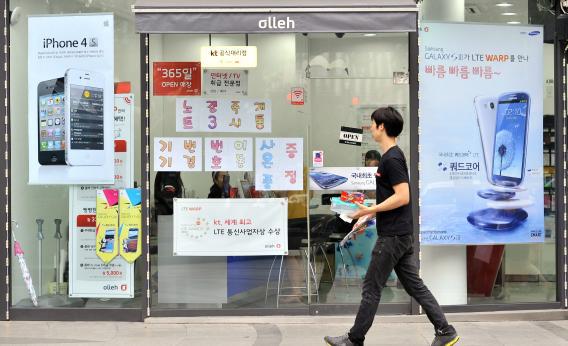Did Samsung really steal Apple’s innovations? It all depends on where you live.
In the United States, Samsung’s smartphones and tablets officially amount to a blatant and even willful ripoff of Apple’s iPhone and iPad. In other parts of the world, meanwhile, Apple’s patent infringement claims are being ruled bunk.
In South Korea, a court ruling issued on the very same day as the blockbuster U.S. verdict found that Samsung did not copy the iPhone’s look and feel. The South Korean court did find one infringement on Samsung’s part, but it also found that Apple illegally copied wireless technology that Samsung had patented. Both companies had various products banned from the country’s shelves.
And on Thursday, a district court judge in Japan denied Apple’s allegation that Samsung had copied one of its smartphone features, related to the synching of media files. In a statement, Samsung crowed: “We welcome the court’s decision, which confirmed our long-held position that our products do not infringe Apple’s intellectual property.”
Of course, the Japan ruling “confirms” no such thing—any more than the U.S. ruling confirmed that Samsung’s products do in fact infringe Apple’s intellectual property. (German and Australian courts have come to their own conclusions, none of which exactly match those of the United States, South Korea, or Japan.)
The only thing the rulings prove for certain is that patent trials are inherently subjective. What one judge, jury, or legal system considers blatant infringement might count as a legitimately different technology in the eyes of another beholder.
For more on how the U.S. jury reached its decision, check out the BBC’s interview with the jury’s foreman. He’s pretty convinced the process was totally objective. Are you?
